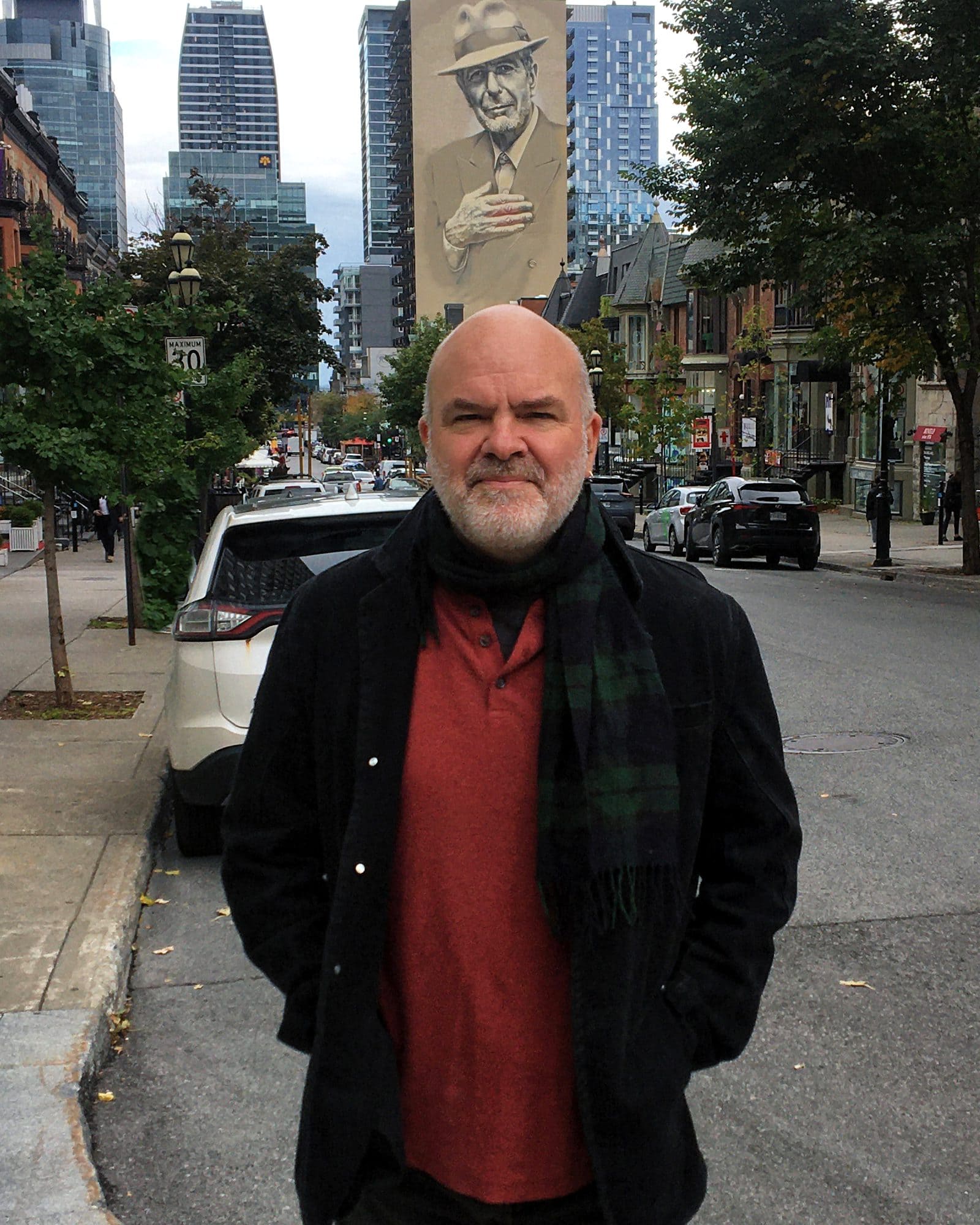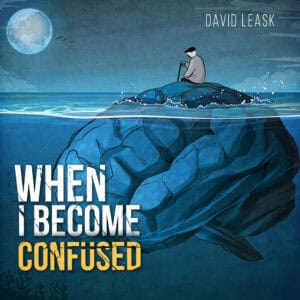
Spotlight: David Leask on Music That Heals, Alzheimer’s Awareness & The Song That Says It All
Spotlight: David Leask shines on a songwriter with purpose, heart, and an unforgettable voice. With his latest single “When I Become Confused,” created in partnership with the Alzheimer’s Society of Peel, Leask blends deeply human storytelling with emotional resonance. In this interview, we dive into the inspiration behind the song, the evolution of his craft, and how music can truly make a difference.

Your new single “When I Become Confused” is deeply moving. What inspired you to write this song?
The idea for the song was originally given to me by an old school chum Rob Keiller when I was on tour in the UK. Out of the blue, Rob told me he had written a poem with the title “When I Become Confused” after his mother Ada passed away from Alzheimer’s at only age 64. I asked him to send me a copy of the poem. At the time, my wife and I were caring for her mother Ruth who was dealing with Dementia, and the title of the poem certainly resonated with me. Once I had a chance to look over the poem, the title and several other lines stirred me and I was inspired to write the song. While living with Ruth and watching her as the disease progressed, I became aware of things that helped me imagine what it might be like for her. With this creative approach and voice, I hoped the song would open audiences to a sense of empathy and understanding for someone living with this disease and for those journeying with them.
How did the partnership with the Alzheimer’s Society of Peel come about?
When my wife and I were caring for her mother Ruth, we reached out to the Alzheimer’s Society of Peel and we learned of a range of programs and support they offered for people dealing with Dementia but which also supported the carers who were journeying with them. They brought a lot of positive experiences to Ruth’s life, particularly around music, but were also a very helpful support for us. I was delighted to have them want to partner with me around the song and the video for, When I Become Confused, which they will use ongoing in their own fundraising and efforts to raise awareness.
How did you approach the song writing and production for a subject like this?
The songwriting spark really came from the title of Rob’s poem, and having watched my own mother–in–law Ruth as the disease progressed, I became aware of things that helped me imagine what it might be like for her. I tried to write the song from an empathetic lens and understanding for someone living with this disease and for those journeying with them. For the production, it was recorded live off the floor with Aaron Davis on piano, Drew Birston on upright bass and Davide DiRenzo on drums. Thanks to their combined thoughtful phrasing and musical space, as they weaved their parts together it allowed me a sense of freedom to tap into the emotion of where the song came from. After the session, producer/guitarist Justin Abedin overlaid his electric guitar parts creating a delicate soundscape like a textural brain fog over the live tracks, that for me, along with the sensitivity of the other musicians, translated the lyrics of the song so beautifully.
Music has such a unique ability to connect with people. What kind of responses have you gotten so far?
The song has had a powerful impact and many people have told me how moved they are by the words and music and the animated video. I had the opportunity to perform this song live at the opening of the Music Care by Room 217 conference last November, which was a conference for carers who use music in their work. It had an impact. One man came up to me afterwards and told me it made him cry by the second line, “the bridge between synapses collapses and words fall through”, as he recognized himself and his wife, having been a carer for her as she has dealt with Dementia. Since the release of the song, I am struck by how many people have got in touch to tell me of their own stories of how the disease has touched their lives.
On a lighter note — what keeps you creatively inspired these days?
Apart from the simple act of picking up a guitar or sitting down at the piano, reading books, having conversations and generally listening for something on the page or in the air that evokes a phrase or theme that seems worth writing about.
You've been in music a long time. How has your sound evolved over the years?
When I think of my sound, I think of it as comprising my vocals, the songwriting approach and the production. My voice has changed over the years and I’ve become more comfortable with how to interpret a song lyric and melody with the more road and studio miles that I’ve covered. I feel more comfortable in my own skin which I think carries over, not just in the songwriting, but also in the production in terms of decision making. I am very fortunate to have a world class co-producer like Justin Abedin work with me on my last 4 records and I think we have developed a synergy of understanding, focusing on keeping the production organic with live studio musicians who are sensitive to all the elements of the song. All this to say, my sound has evolved with my own evolution as a songwriter and a human!
What is one thing you think should be asked in an interview that isn’t asked enough?
I’ve heard it said that to thrive as an artist you need to be able to reject acceptance and accept rejection. Do you agree and what’s that like for you?
What’s something you have had to “unlearn” that doesn’t work with your work flow anymore?
I’ve tried to unlearn the illusion of control. It feels like we grow in confidence over time at our craft or performance ability but lose sight of the earliest forms of freedom and flow of imagination and intuition that bring our creativity into existence. For me, I can hear a song idea and there can be a tendency to try and reach out and grab it, rather than let it slowly arrive at its own pace. Letting go of control and trusting in the flow of the creative process really is a life’s work!
Who plays you in the movie of your life?
That’s a strange question to think about. Maybe everybody’s life is a movie these days! It would be someone kind of quirky, with an interesting sense of humour, perhaps someone like Tim Roth, but he’d have to work on his Scottish accent! Lorem ipsum dolor sit amet, consectetur adipiscing elit. Ut elit tellus, luctus nec ullamcorper mattis, pulvinar dapibus leo.
If you had to introduce your music to a new fan for the first time, which song is it and why?
It depends on the context and timing. For example, at a live gig, there may be a conversation with someone beforehand and I have an idea of what might resonate. With no introduction, I rely on my intuition in the moment. At the present time, I am likely to introduce something from the upcoming record, “One Ray of Light At A Time”, coming out in the fall because it is where I am musically right now. Otherwise, a powerful song I often choose that means a lot to me is “Against The Grain”, written on the Six String Nation guitar from my last record Voyageur In Song. The writing of the song was a powerful experience for me. There is something special in the song and it has had a real impact when I play it live.
What motivates you to keep walking the musical road?
The prospect of discovering something new. Somewhere I’ve never been before in a song musically or lyrically. It’s a path of mystery that I’m trying to stay on for what I might see or learn at any point along the road Lorem ipsum dolor sit amet, consectetur adipiscing elit. Ut elit tellus, luctus nec ullamcorper mattis, pulvinar dapibus leo.
What are some of the next milestones you are looking to hit?
I am looking to release my new album in the fall in a different way that allows people to connect with me and the songs at a deeper level. The present digital streaming destination makes it nearly impossible for your individual musical waves to be seen in a such vast ocean of content. If I can create a village of fans to support what I do, that will be a big milestone.
What are you most proud of in your career?
I think I am most proud of still being here as a creative after 30 years and being as excited about bringing something new into the world as I’ve ever been. It’s about sending a song out to find a place in the world where other folks can meet me in the music.
What do you hope fans take away from your music?
Maybe a sense of comfort in someone hearing something that speaks into their own story or maybe questions about life or themselves that they have never thought of before.
If you want your own Spotlight all you have to do is send us a message here
© Hidden Beats Corp. All Rights Reserved 2020
